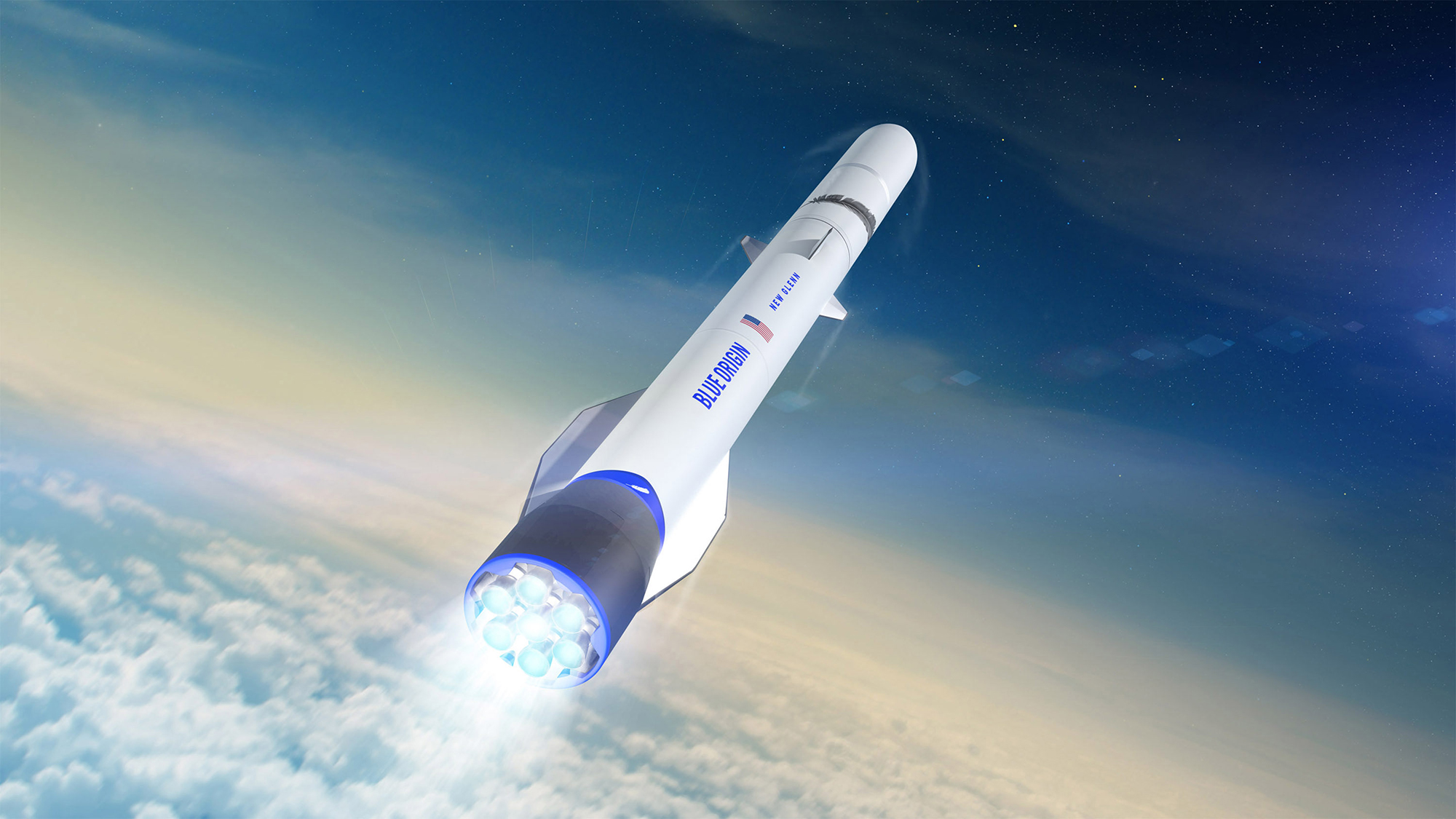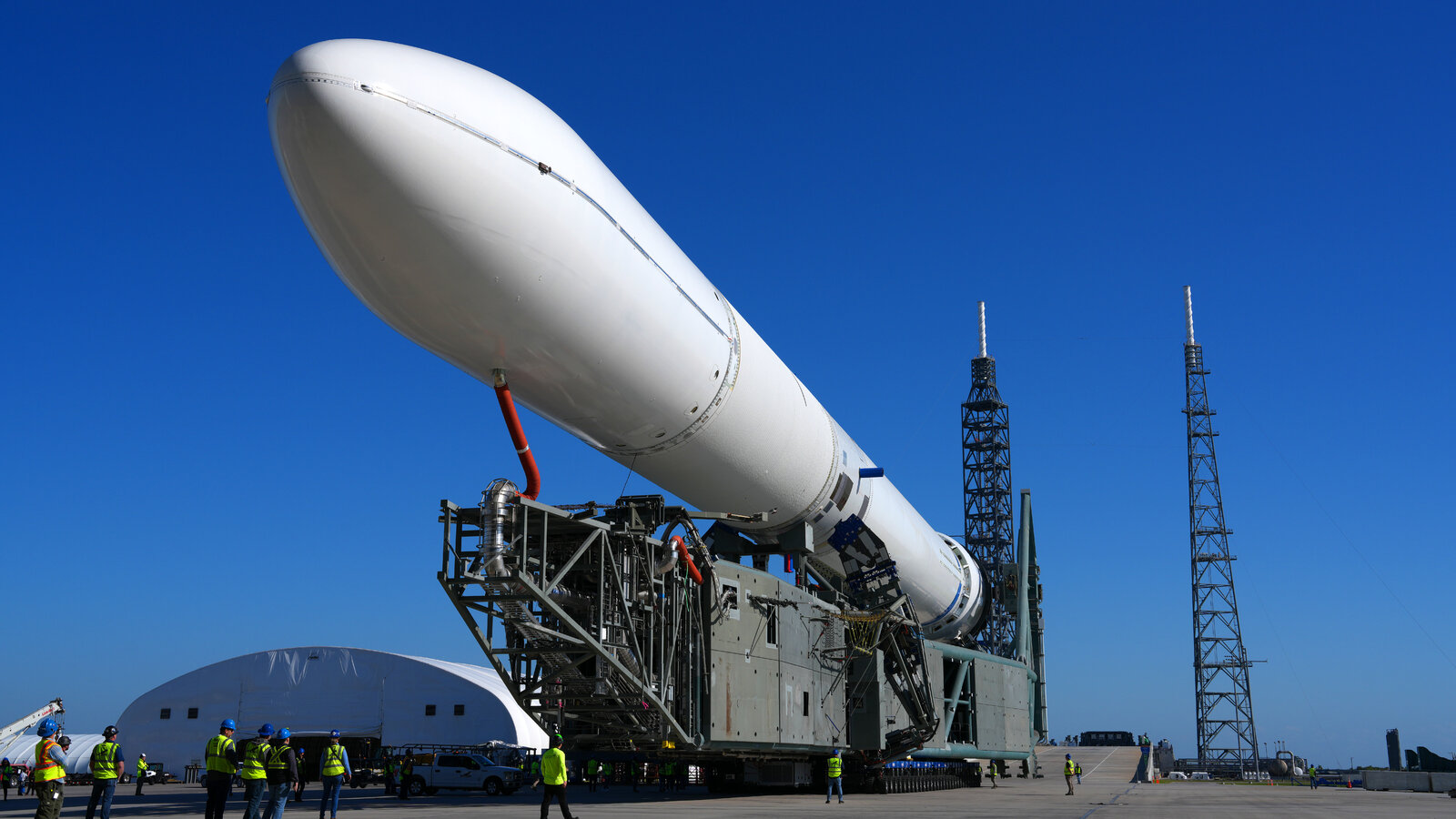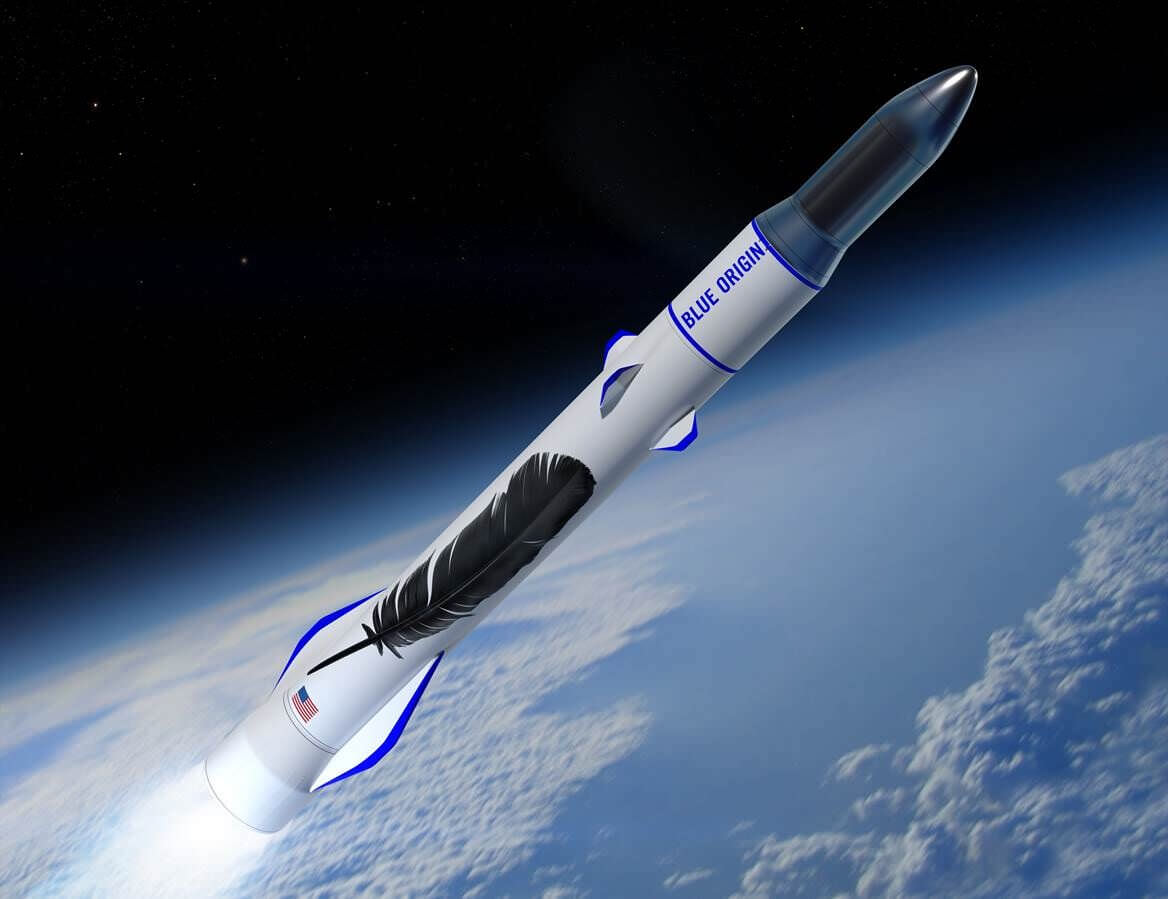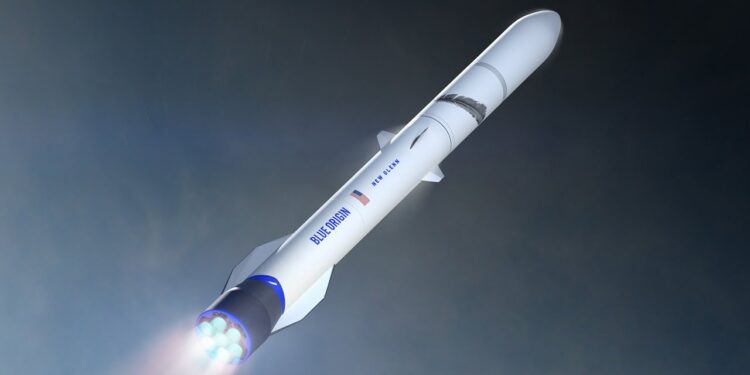As the night sky loomed over Cape Canaveral, an imposing figure rose on the horizon at Launch Complex 36—Blue Origin’s New Glenn rocket, a formidable player in the future of space exploration, is now towering ready on its launch pad. This significant moment in November 2024 marks a pivotal point for Blue Origin, as they gear up for the highly anticipated inaugural flight of their latest orbital rocket.
The New Glenn, named after pioneering astronaut John Glenn, signifies a major leap forward in rocket technology, boasting capabilities that may soon redefine space travel. As the rocket stood stacked against the dark Floridian skies, the excitement within the aerospace community was palpable, with the launch poised to possibly take place by late 2024.

A Technological Marvel Designed for Versatility and Reusability
The engineering marvel of New Glenn is not just its impressive stature; the rocket comes in two configurations—a two-stage version standing at 270 feet and a three-stage variant that reaches a towering 313 feet. To put it in perspective, even the smaller variant surpasses the height of SpaceX’s Falcon 9. What sets New Glenn apart is its fully reusable first-stage booster, designed to make space travel more sustainable and cost-effective.
Blue Origin’s ambitions don’t just stop with launching rockets. The New Glenn is set to carry the innovative Blue Ring spacecraft, which functions as a versatile service module for other spacecraft or instruments. According to Blue Origin officials, Blue Ring is crafted to facilitate easy maneuverability across multiple orbits, whether it remains attached to the rocket or deploys after launch. This adaptability makes it an ideal candidate for a variety of missions, emphasizing Blue Origin’s commitment to flexibility in its aerospace endeavors.

Preparing for the First Mission: DarkSky-1
The anticipation for New Glenn’s debut isn’t just about witnessing a new rocket taking to the skies; it’s also about its first mission, DarkSky-1. This certification flight, sponsored by the U.S. Defense Innovation Unit, is crucial for the National Security Space Launch program, highlighting the rocket’s strategic importance.
Originally slated to ferry NASA’s twin ESCAPADE Mars probes in October 2024, the launch was postponed due to concerns over cost overruns—a reminder of the challenges inherent in pioneering technology. This setback has only heightened the intrigue and expectations surrounding the rocket’s inaugural flight.

As we approach the projected launch window, the aerospace community and space enthusiasts alike are on the edge of their seats, eager to see how New Glenn will perform. Blue Origin’s leap into orbital launches with New Glenn could very well set new standards in the space industry, blending innovation with the dreams of reaching new frontiers.
With each update and milestone, Blue Origin is not just launching rockets; they are crafting the future narrative of space exploration, one that promises to bring more than just payloads into orbit, but also a new era of possibilities beyond our blue planet.










